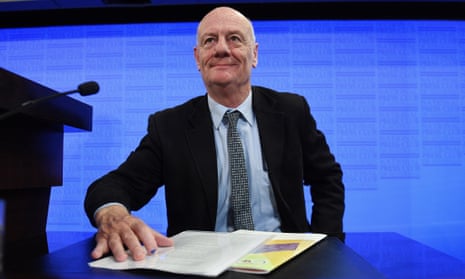This week Sydney University announced it has established a centre for excellence in gambling research. This centre is substantially funded by the International Center (sic) for Responsible Gaming, as well as Entain Australia and Sportsbet.
Entain Australia and Sportsbet are subsidiaries of international gambling operators, and run major online bookmaking businesses in Australia, as well as other global operations.
The International Center for Responsible Gambling is an organisation based in the United States. It is funded by US casino operators, and other gambling industry businesses, including MGM Resorts, Bally’s, IGT and Ainsworth Game Technology (both poker machine manufacturers), and its “supporters” page thanks the American Gaming Association and the Association of Gaming Equipment Manufacturers for their support in raising $2.2m of their $40m budget.

In this business, “gaming” equals “gambling”. These companies, for whatever reason, are keen to avoid immediate associations with “gambling”. So is the International Center for Responsible Gaming, with its board consisting of many senior executives from the gambling industry and its partners.
Imagine if Sydney University had accepted $600,000 from a tobacco industry front organisation to fund cancer research? That would be beyond the pale these days, although at one time the tobacco industry enjoyed very cosy relationships with many researchers. The purpose of tobacco industry investment in research is now clear: the tobacco industry utilised research funding to create doubt and controversy about research that showed how harmful tobacco was, and set out to create confusion when a scientific consensus had emerged.
Research paid for by the tobacco industry delayed reforms that would have saved many lives and demanded impossible standards of proof before accepting emerging public health solutions.
We know from an increasing body of research that gambling industry funding of research has similar goals and utilises similar methods. This is particularly the case when terms like “responsible gaming” are invoked. Increasingly, eminent researchers in Australia and overseas are calling for an end to the responsible gambling/gaming mantra, and its replacement with an approach that gives the prevention of harm a priority. “Responsible gambling” blames individuals for the consequences of using badly regulated and highly dangerous products, provides, at best, “harm minimising” interventions that don’t work, even if they are actually implemented (which is rare), and allows the money-making machine to roll on.
-
Sign up for Guardian Australia’s free morning and afternoonemail newsletters for your daily news roundup
It sits behind the disaster of Crown casino, where royal commissioner Ray Finkelstein made it clear that “Crown Melbourne had for years held itself out as having a world’s best approach to problem gambling. Nothing can be further from the truth.” He also noted that this constituted perhaps the most damning discovery by his royal commission, imposing enormous costs on the community.
This neglect of their customers was all the work of the responsible gambling mantra, a system developed to provide the illusion of concern for an industry, that as recent inquiries have shown seems mostly disinterested in preventing either harm or money laundering.
Into this steps the University of Sydney. The director of the new Centre, Professor Sally Gainsbury, has a long association with industry funding and cooperation. The declarations page for the academic journal she co-edits lists a veritable who’s who of gambling operators, including ClubsNSW, Crown, and Responsible Wagering Australia.
The university argues that cooperation with gambling companies will allow access to de-identified data to facilitate research. It may do so, but if these companies were so altruistic, why does the provision of that data rely on a funding arrangement? Why not do as has been done in Spain, and establish a data vault where de-identified data from gambling operators is made available to all researchers – not just the select few.
In fact, recommendation six of the recent report of the Australian parliamentary committee inquiring into online gambling recommended exploring just that.
And recommendation eight of the report explicitly suggested Australia pursue international agreements to “reduce gambling harm and protect public policy and research from gambling industry interference”.
Nothing prevents the university from taking the gambling industry’s money. But it means that this industry, like tobacco, gets a ringside seat at the gambling research table. The World Health Organization’s framework convention on tobacco control (which Australia has signed up to) was blunt, condemning partnerships between research and that industry: “there is a fundamental and irreconcilable conflict between the tobacco industry’s interests and public health policy interests”.

There are lots of risks to reputations and credibility in taking money from industries that create harmful products. As the old saying goes, “who pays the piper calls the tune”. The university may well deny that this is the case in these circumstances. Public perception may differ.
Yet the greatest harm of all will be suffered by hundreds of thousands of ordinary people, including the partners, friends, and children, of gamblers, who will be harmed, sometimes permanently, by a continuation of the gambling industry’s involvement in the research community. Against that, $600,000 is nothing.
Tim Costello is chief advocate of the Alliance for Gambling Reform
This article was amended on 18 August 2023 to remove a reference to the Life Course Centre. The University of Sydney initially said in a statement that the gambling research centre received funding from the Life Course Centre, but subsequently retracted it. The Guardian is happy to make clear the Life Course Centre has no financial connection with the gambling research centre.
